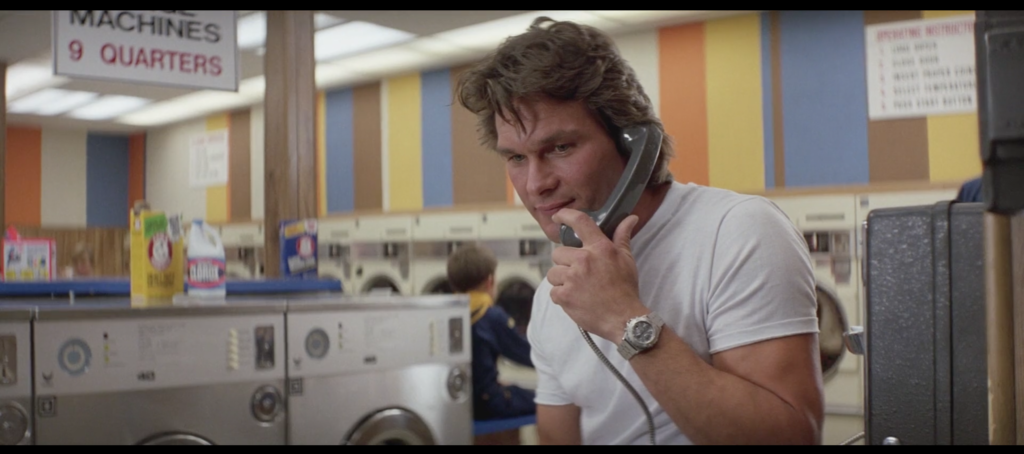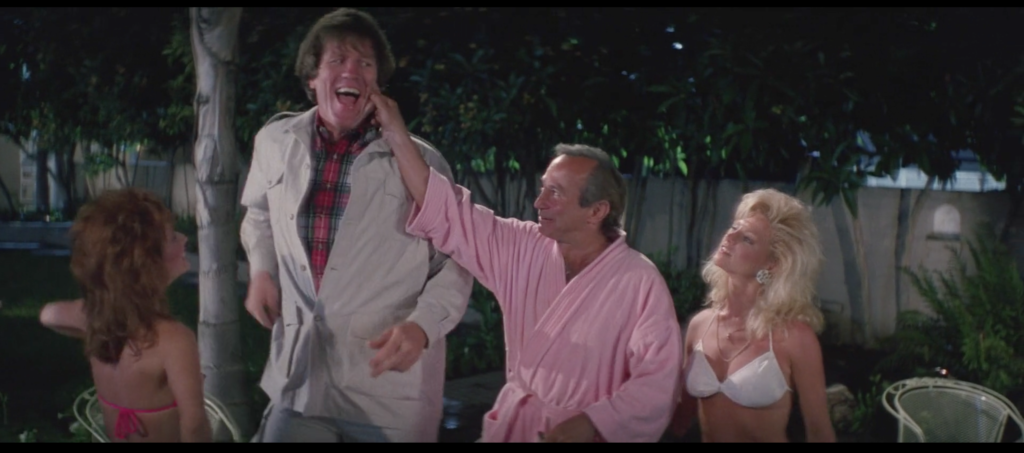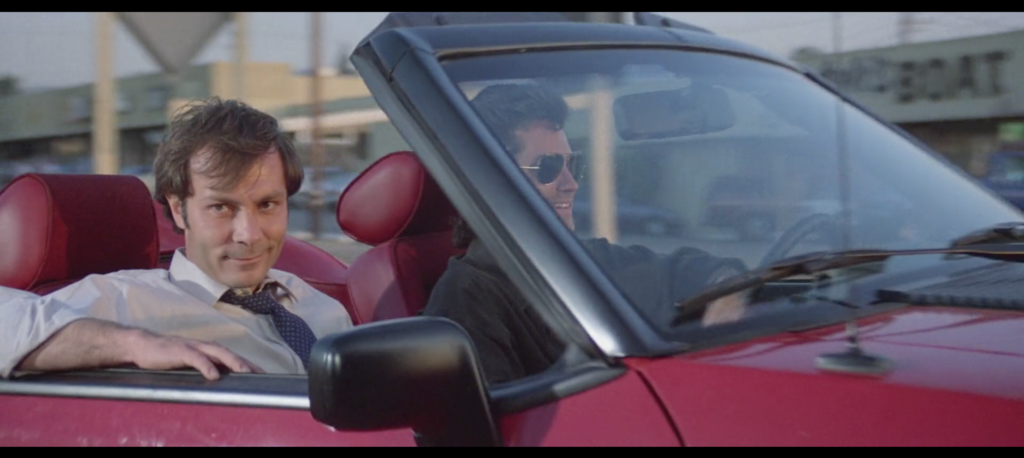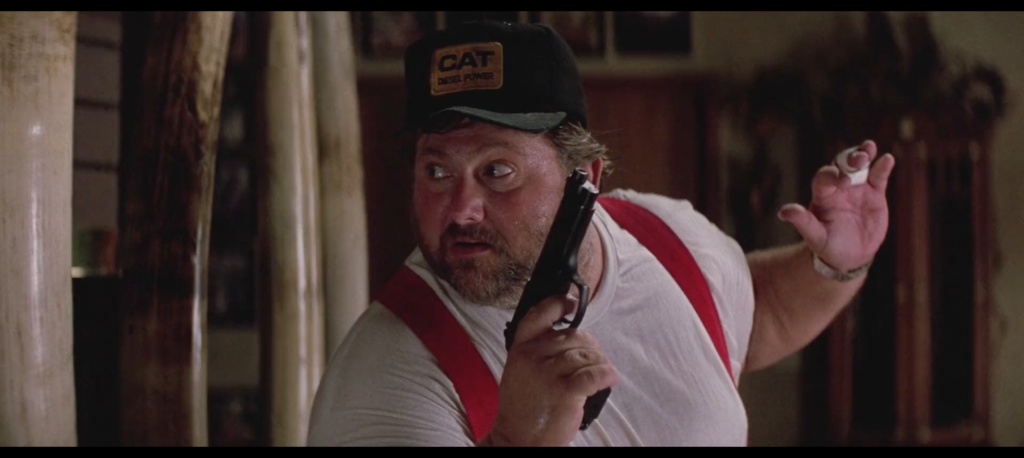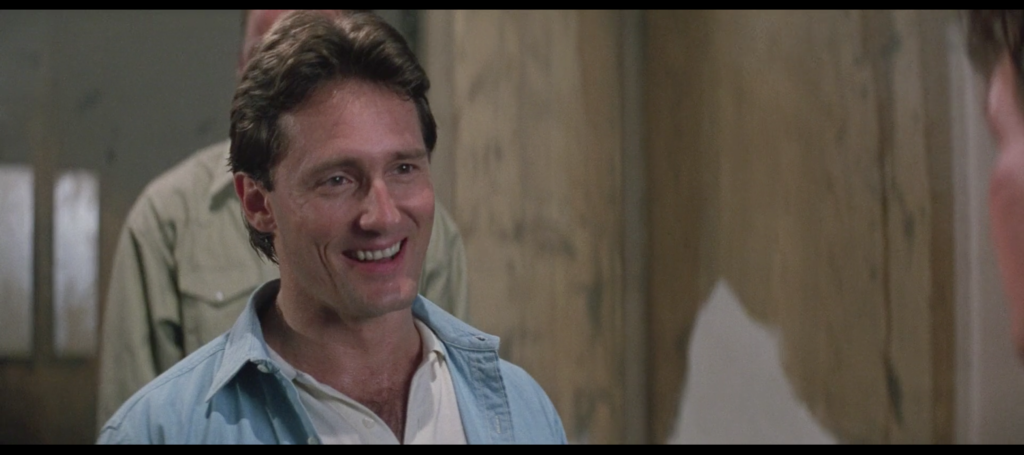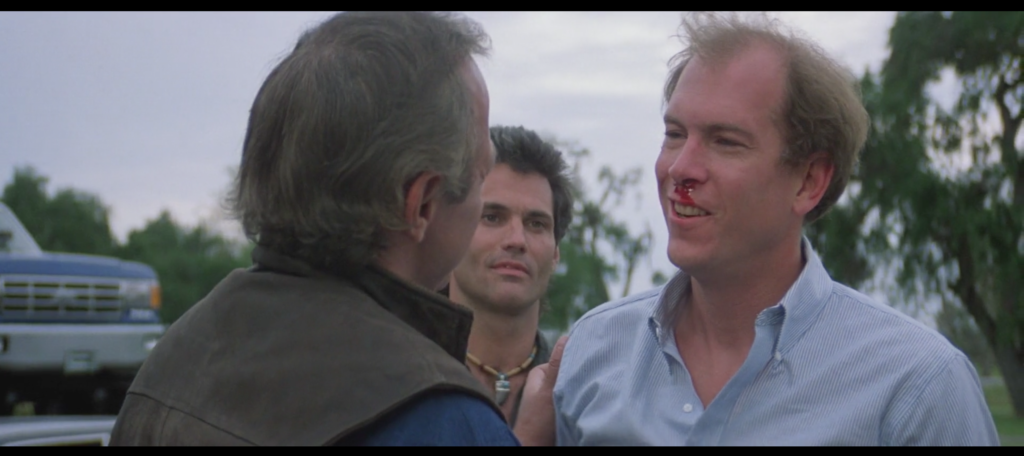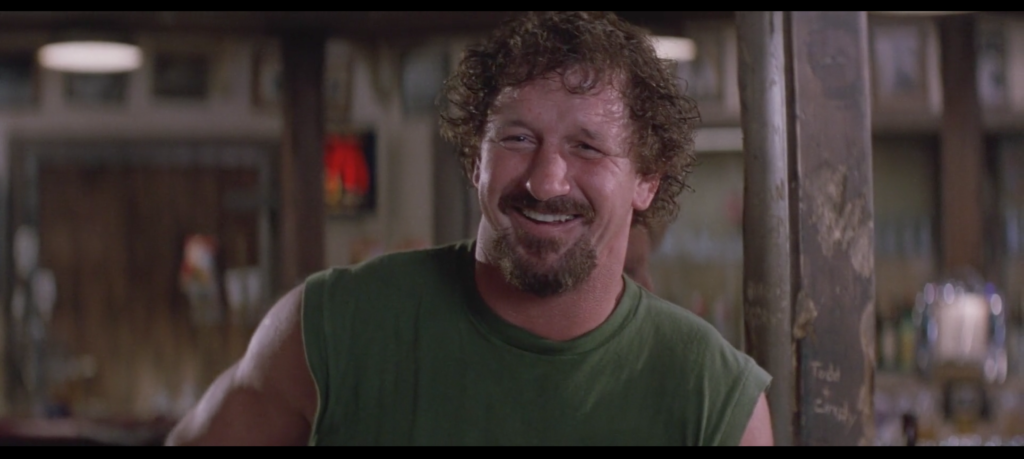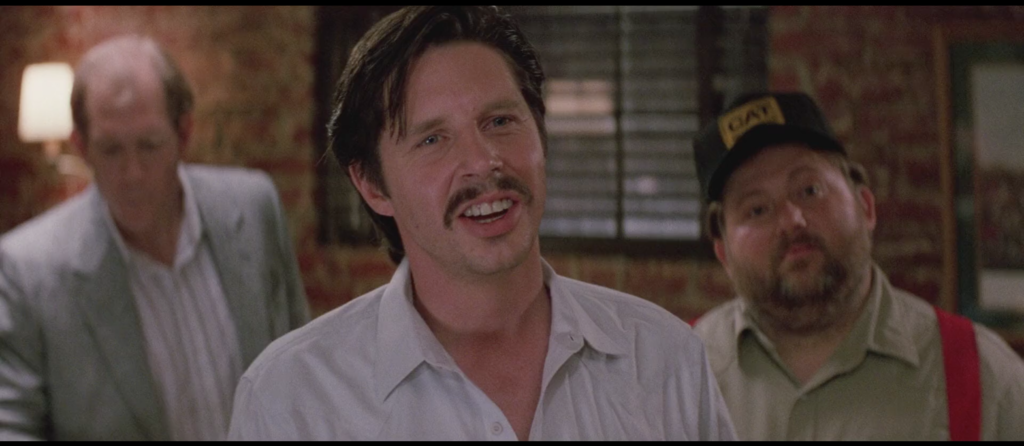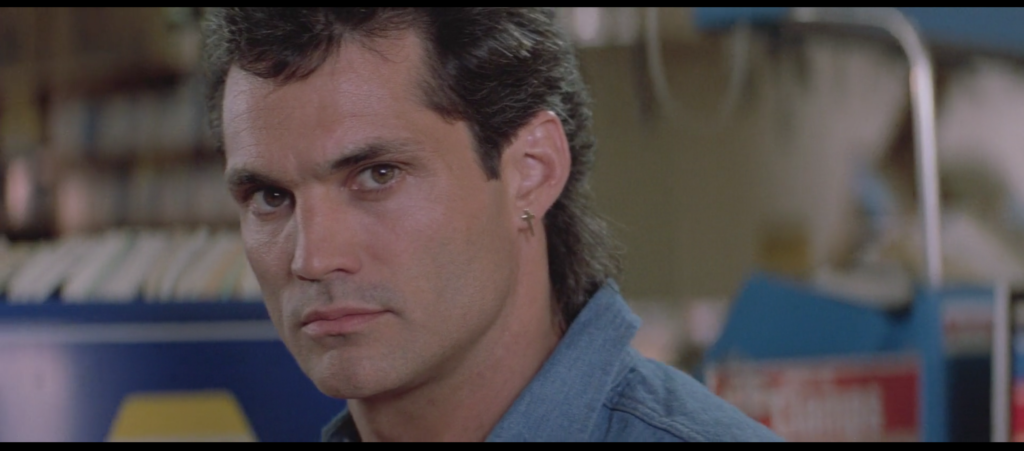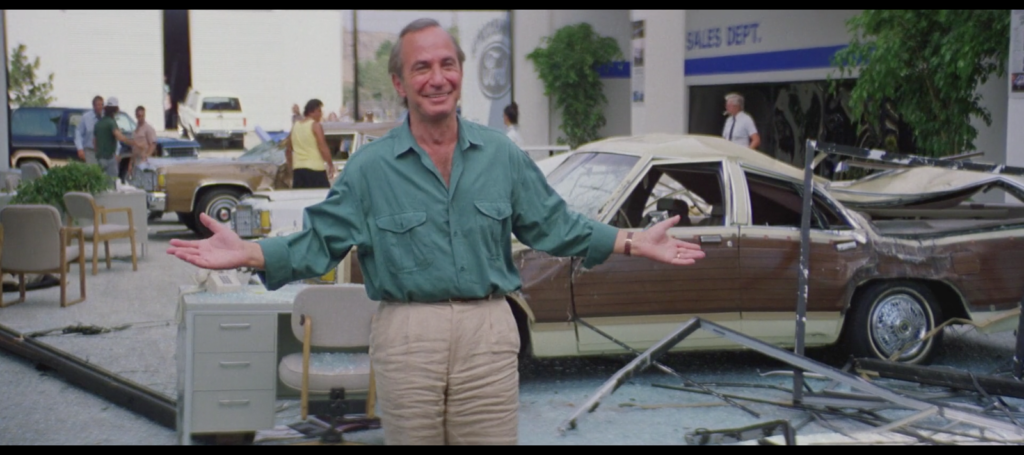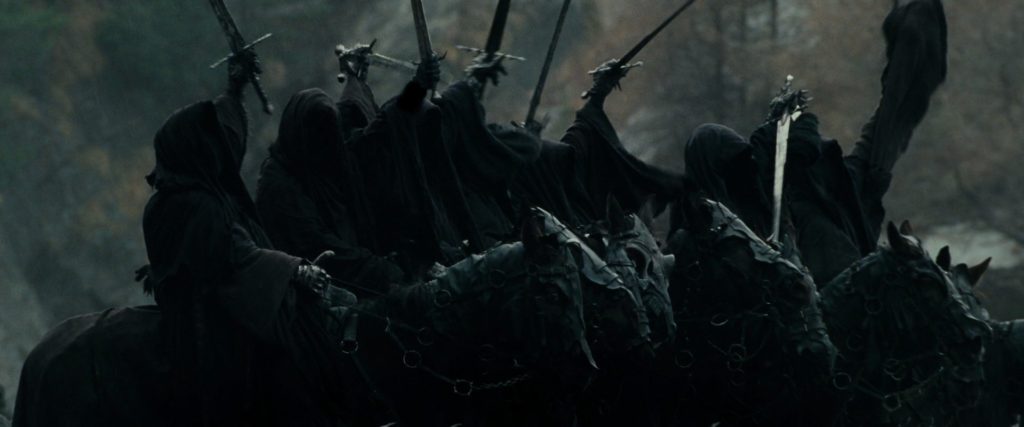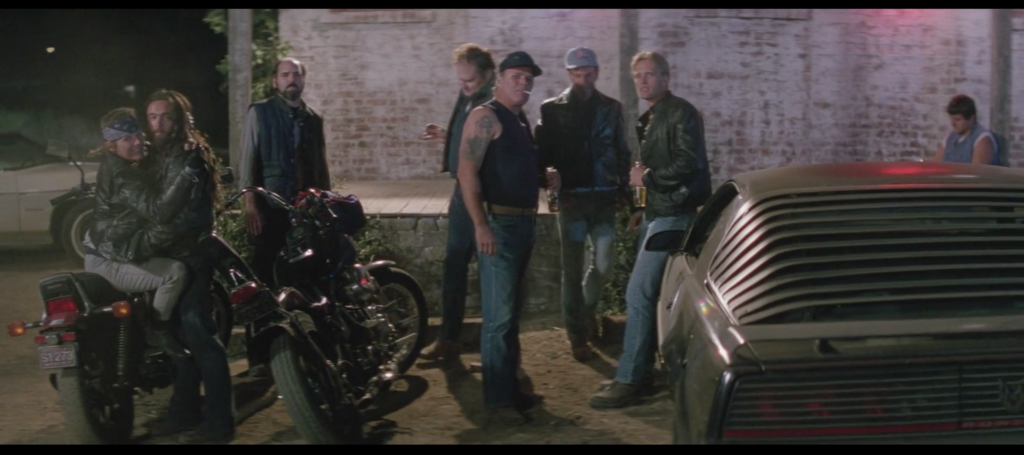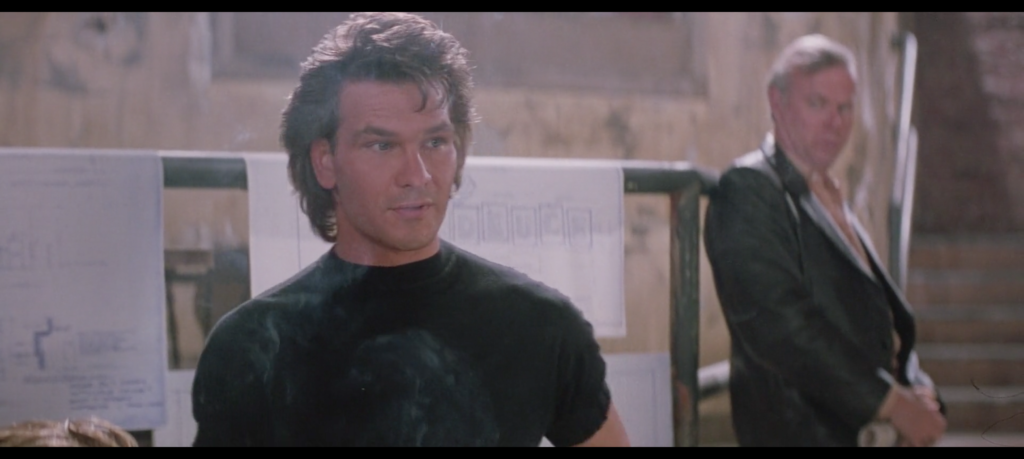Posts Tagged ‘the first rule’
114. The Nine
April 24, 2019Nine quarters, says the sign that appears in the middle of Dalton’s pivotal conversation with Wade Garrett, right after he blows off the threat presented by Brad Wesley. Right away we can see that reality has warped a little, that a glitch in the matrix has appeared. As well it might: Dalton has just underestimated his opponent and failed to expect the unexpected, a violation of his own First Rule. And for that, a price must be paid.
But what if there’s more to it than that?
It was not I who set myself on this path, but reader @RoddySwears. It was he who noted the numerological significance of the established price. Nine quarters. Two dollars and twenty-five cents. $2.25. 2 + 2 = 9.
What could such a specific prophecy mean?
Then I realized.
The Nine are abroad.
039. Biker Gang
February 8, 2019The very first people to give Dalton shit upon his arrival in Jasper aren’t Brad Wesley and his goons. They aren’t the corrupt members of the Double Deuce’s staff. They aren’t even Knife Nerds or other random ne’er-do-wells among the club’s clientele. They’re a biker gang, in the Double Deuce’s parking lot. “Mer-SAY-dees!” they whoop it up as Dalton parks his luxury work of German engineering in the unpaved unloading zone for the town’s worst element, glaring at him all the while. “Hey hotshot! What’s wrong with Dee-troit cars?” Dalton simply stares back at them and their bikes and their very cool ’80s bad-guy car, tosses away his cigarette, and goes about his business. You and I are left with more to ponder.
At first blush it’s just a bit of color, a way to convey that the Double Deuce is a rough and tumble environment before you so much as step through the doors, in the same way that watching Morgan the evil bouncer toss a guy through those doors a few seconds later (“Don’t come back, peckerhead!”) lets you know what you’re in for once you set foot inside. What makes it a uniquely Road House bit of color how none of it has the slightest relevance at any point in the future, and how no element of it is ever heard from again.
Are biker gangs a threat Dalton will face in his quest to clean up the Double Deuce, and eventually the entire town of Jasper? No. Not even a little bit, in fact. The problems all stem from Brad Wesley, the Fotomat King, and his merry band of assholes. This is Road House, not The Road Warrior. Though Dalton and Brad Wesley could well be the Mad Max and Lord Humungus of the post-guzzoline Missouri wastelands should it come to that, this is merely informed speculation.
Is there a slobs vs. snobs angle to the movie? Again, no. For one thing Dalton always stows away his fancy car and uses a ringer instead once he starts working, so he doesn’t even bring the Mercedes back to the Double Deuce, or anywhere else for that matter, until the end of the film. He doesn’t ostentatiously spend his money, or wow the local yokels with his citified ways, or even crow about his NYU philosophy degree to woo Dr. Elizabeth Clay. What’s wrong with Dee-troit cars? Nothing, as far as he’s concerned. (This is a question better directed at Brad Wesley.)
Maybe these guys play a role in the ensuing all-hands-on-deck barfight, the movie’s first? Once again, no. The instigators and all the primary combatants are just the usual drunken shitbirds and meatheads. While it is true that one of the bikers miraculously appears inside as the Shirtless Man about twenty seconds later, this is down to Road House‘s charmingly free-form approach to continuity, rather than the idea that this guy somehow raced around to a back entrance, bared his chest, and started boogying down in the time it took Dalton to cross the parking lot and enter from the front. The Shirtless Man, at any rate, is a dancer, not a fighter.
But in their own pointless way, the bikers illustrate the importance of Dalton’s First Rule: “Never underestimate your opponent. Expect the unexpected.” Your enemies could look like anyone, come from anywhere, and attack at any time, even if their offense consists solely of “Buy American” jingoism. A cooler of Dalton’s experience and skill would have devised a plan for combatting these creeps within seconds, and likely kept it filed away throughout the course of the film, in case Brad Wesley ever hired them to run his clunker off the road, or prevent him from accessing one of Jasper’s many auto and auto-parts dealerships—or, less facetiously, bring the fight to grizzled old road dog Wade Garrett before he so much as parks his motorcycle. Indeed, one could argue that Dalton’s purchase of a beat-up car to replace his Mercedes was his way of defeating these opponents by depriving them of their casus belli. Victory is his before battle is joined.
031. The First Rule
January 31, 2019“This is the new Double Deuce,” says Frank Tilghman. We are at the start of an all-hands staff meeting, and Tilghman is pointing to the concept art for the bar’s redesign. But standing nearby is his latest hire, Dalton. It is through Dalton, with Dalton, in Dalton that the new Double Deuce will be achieved. Dalton embodies the new Double Deuce. He is its future.
When Dalton takes over as cooler he becomes more than just the chief bouncer. His role is not to handle a series of discrete incidents, but to institute sweeping reforms that will eliminate such incidents forever. “It’s going to change,” he states—not a threat, not a promise, a fact. His bouncers, too, must change for this to take place. As below, so above.
Bouncing on the Dalton Path is a matter of following “three simple rules.”
This is the first.
1. Never underestimate your opponent. Expect the unexpected.
To the uninitiated, Rule One sounds like it ought to be Rules One and Two. The first part dictates that one cannot take victory for granted no matter the look of the foe, wisdom borne out time and time again throughout the film. Old men prove to be exceptionally capable fighters. Heavy men move at speeds men half their size can’t match. And as the Knife Nerds amply demonstrate, even the most rat-faced and weaselly goons can carry death in their denim. You underestimate these men at your peril. Assume anyone you face in open combat, even the bleeders and the sister-sons, can and will kill you if given the chance.
Expecting the unexpected is a different matter, or so it seems at first glance. Sometimes that means anticipating that a would-be assassin has a boot-mounted knife, or that a business dispute will be settled with a monster truck, certainly. But the unexpected could also be advantageous, could it not?
Not for the purposes of Rule One, no. The combination of these two diktats is not arbitrary. By wedding the latter to the former, Dalton suggests that the unexpected always breaks in favor of your opponent: a bootblade stabbing at a human face, for ever. The bouncer must accept this.
But the inverse is also true. If never underestimating your opponent necessarily and coterminously entails expecting the unexpected, it follows that a rational assessment of your allies deems them perfectly reliable. You don’t need to wonder whether your fellow bouncers can help you. You can bank on it. They will never disadvantage you in unexpected ways like your enemies might. Your comrades will be there and be true. You can expect it. “Watch my back and each others’,” Dalton says near the conclusion of the Giving of the Rules. But with the First Rule, he’s said it already.
It’s a bit of an “If you think this sentence is confusing, change one pig” situation, isn’t it: For bouncers to be perfected, they must follow Dalton’s three simple rules, the first of which takes their preexisting perfection for granted. But simply by turning the First Rule around in their minds the bouncers of the Double Deuce are that much further along the Dalton Path. They begin thinking every enemy with the wary respect you show a large animal or an operating piece of heavy machinery. They envision scenarios that will surprise and shock them, and thus begin to take those surprises and shocks in stride. In so doing they become people who are unsurprising, consistent, dependable, stalwart—each man a hidden blade in the boot that is the bouncer corps, expertly wielded by the cooler’s outstretched leg, working in concert against all the goons that were or are or will be.

